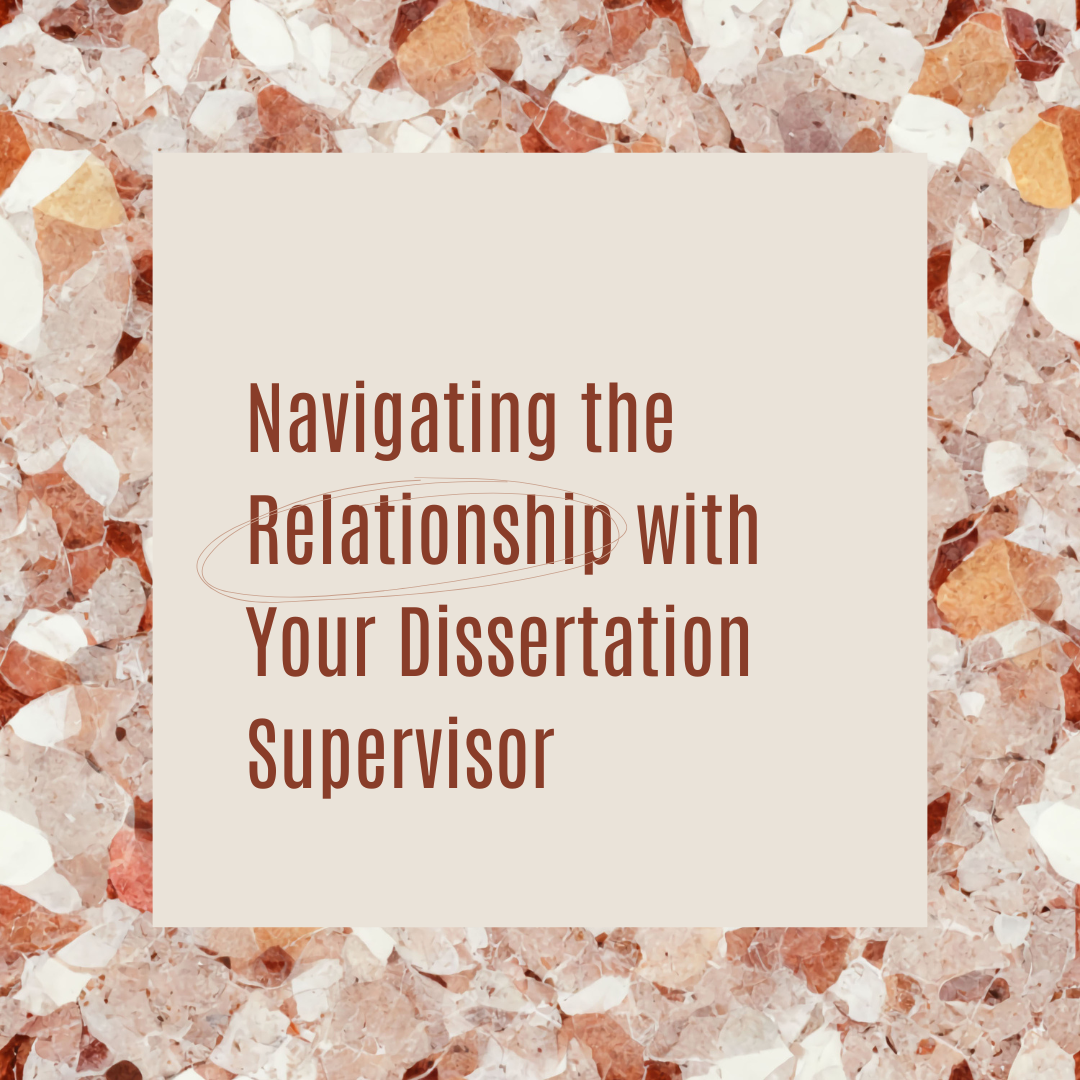Your dissertation supervisor is one of the most important figures in your PhD journey. They’re your guide, critic, mentor, and sometimes even a bit of a mystery. A healthy, productive relationship with your supervisor can make the difference between a smooth academic experience and one that feels like pulling teeth. But how do you navigate this pivotal relationship without stepping on toes or losing your mind? Here’s a guide to setting expectations, improving communication, and dealing with disagreements—all while keeping your sanity intact.
Why Your Supervisor Relationship Matters
Think of your supervisor as the captain steering your ship through uncharted academic waters. Sure, you’re the one rowing (and doing most of the hard work), but their guidance ensures you don’t end up shipwrecked on an island of poor methodology or a sea of unstructured arguments.
A good working relationship with your supervisor can provide clarity, direction, and support. A strained one, however, can lead to frustration, delays, and even dreaded rewrites. So, let’s get it right.

Setting Expectations: Laying the Groundwork
Like any relationship, the one with your supervisor thrives on clear expectations. The earlier you establish these, the smoother things will be.
1. Clarify Roles and Responsibilities
Your supervisor isn’t there to hold your hand through every step—they’re there to guide you. Discuss what they expect from you and what you can expect from them. Some supervisors are hands-on, others are more laid-back. Knowing their style can save you a lot of guesswork.
2. Agree on a Feedback Timeline
Waiting months for feedback is no fun, but supervisors have other responsibilities. Agree on reasonable timelines for draft reviews and feedback. Pro tip: Always submit well before deadlines to allow buffer time.
3. Define Meeting Frequency
Will you meet weekly, fortnightly, or monthly? Regular check-ins can keep both of you on the same page and ensure consistent progress.
Communication Tips: Keeping the Lines Open
Good communication is the glue of any successful relationship, and this one is no different.
1. Be Prepared for Meetings
There’s nothing worse than showing up to a supervision session with vague ideas and no clear agenda. Prepare a list of updates, questions, and topics to discuss. It shows respect for their time and keeps the meeting productive.
2. Email Etiquette Matters
Keep your emails concise, polite, and to the point. Include clear subject lines and highlight any actions you need them to take. For example, instead of “Thoughts on Chapter 3,” try “Feedback Requested on Chapter 3 Draft – Due 15th March.”
3. Don’t Be Afraid to Ask Questions
If something’s unclear, ask for clarification. Supervisors appreciate initiative and a willingness to learn. It’s better to ask early than to rewrite an entire chapter later.
4. Respect Their Time
Supervisors are busy people. Avoid bombarding them with minor queries; instead, consolidate your questions and address them during meetings.
Dealing with Disagreements: Keeping It Professional
No relationship is without its bumps, and disagreements with your supervisor are bound to happen. The key is handling them gracefully.
1. Pick Your Battles
Not every disagreement is worth a confrontation. If it’s about formatting or minor phrasing, let it go. If it’s a significant issue—like your methodology or argument structure—then it’s worth discussing.
2. Stay Professional
Emotions can run high when you’ve poured your heart and soul into your work. But losing your cool won’t help. Present your case calmly and back it up with evidence from the literature or data.
3. Seek Clarification
Sometimes disagreements stem from miscommunication. If you’re unsure why they’ve rejected an idea or change, ask them to elaborate. Their reasoning might reveal a perspective you hadn’t considered.
4. Know When to Compromise
Supervisors have more experience navigating academia. While it’s okay to push back on certain points, sometimes it’s better to trust their judgment.
Navigating Tough Situations
What if things go really south? Maybe your supervisor is unresponsive, overly critical, or you just don’t click. Here’s how to handle it:
1. Document Everything
Keep records of emails, meeting notes, and feedback. If issues escalate, having documentation can help.
2. Seek a Second Opinion
If you’re unsure about your supervisor’s advice, discuss it with another academic or peer. A fresh perspective can clarify things.
3. Use University Support Services
Most institutions have a postgraduate coordinator or ombudsman who can mediate conflicts. Don’t hesitate to reach out if you’re struggling.
How Academic Coaching Can Help
Academic coaches can be a lifeline when navigating the complexities of the supervisor relationship. They provide:
- Neutral Advice: Coaches offer unbiased guidance on handling tricky situations.
- Communication Strategies: They can help you frame your concerns in a professional, constructive way.
- Goal Setting: Coaches ensure you stay on track, even when supervisor feedback feels overwhelming.
Final Thoughts
The supervisor relationship doesn’t have to be a source of stress—it can be a source of growth and inspiration. By setting clear expectations, communicating effectively, and handling disagreements professionally, you can turn it into a productive partnership that benefits your research.
Remember, your supervisor is there to guide you, not dictate every step. With mutual respect, clear communication, and a proactive approach, you’ll navigate this relationship—and your dissertation—with confidence. You’ve got this!